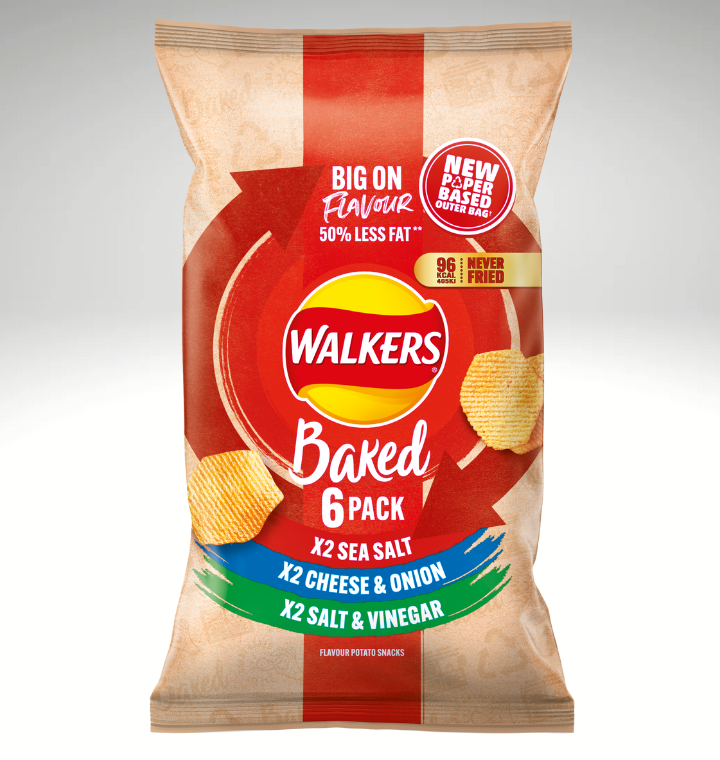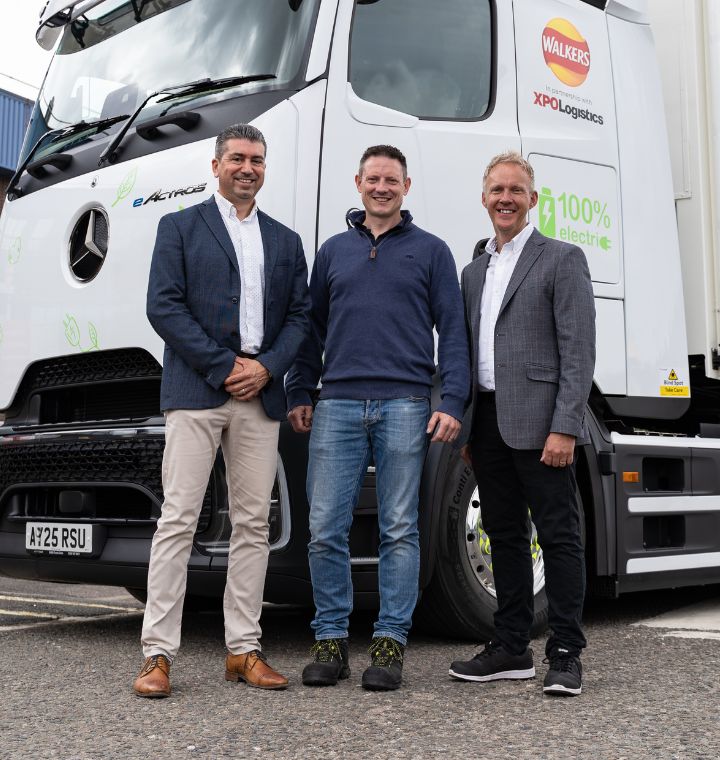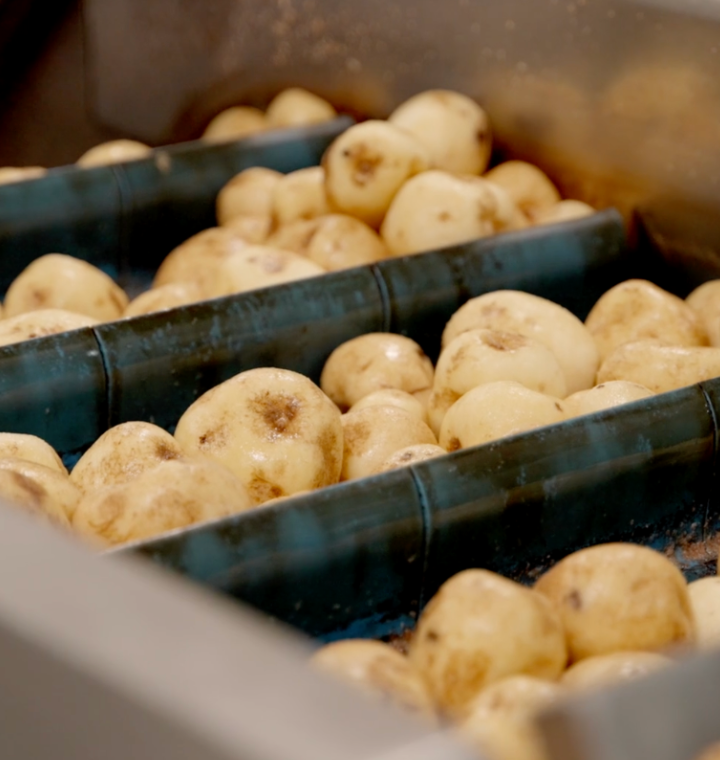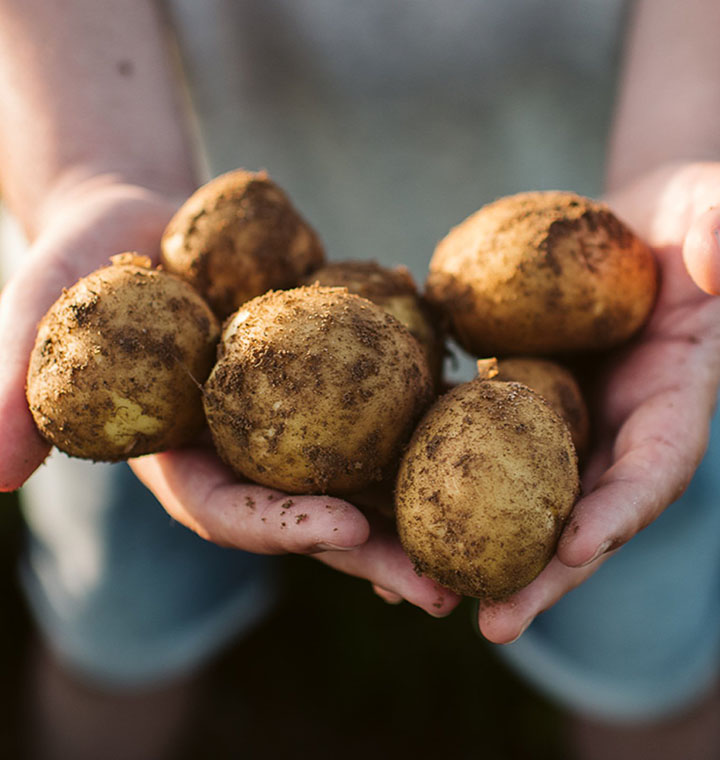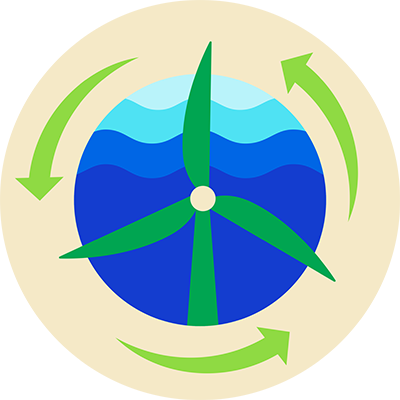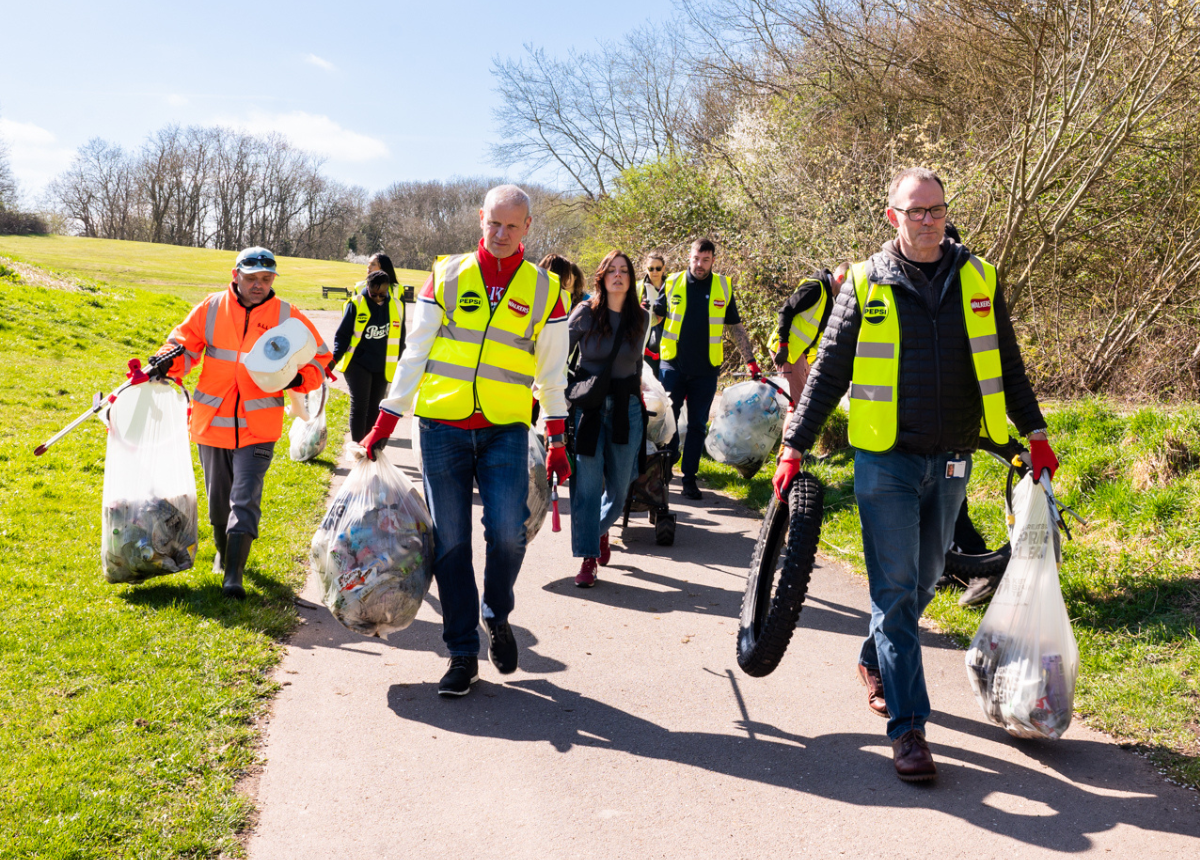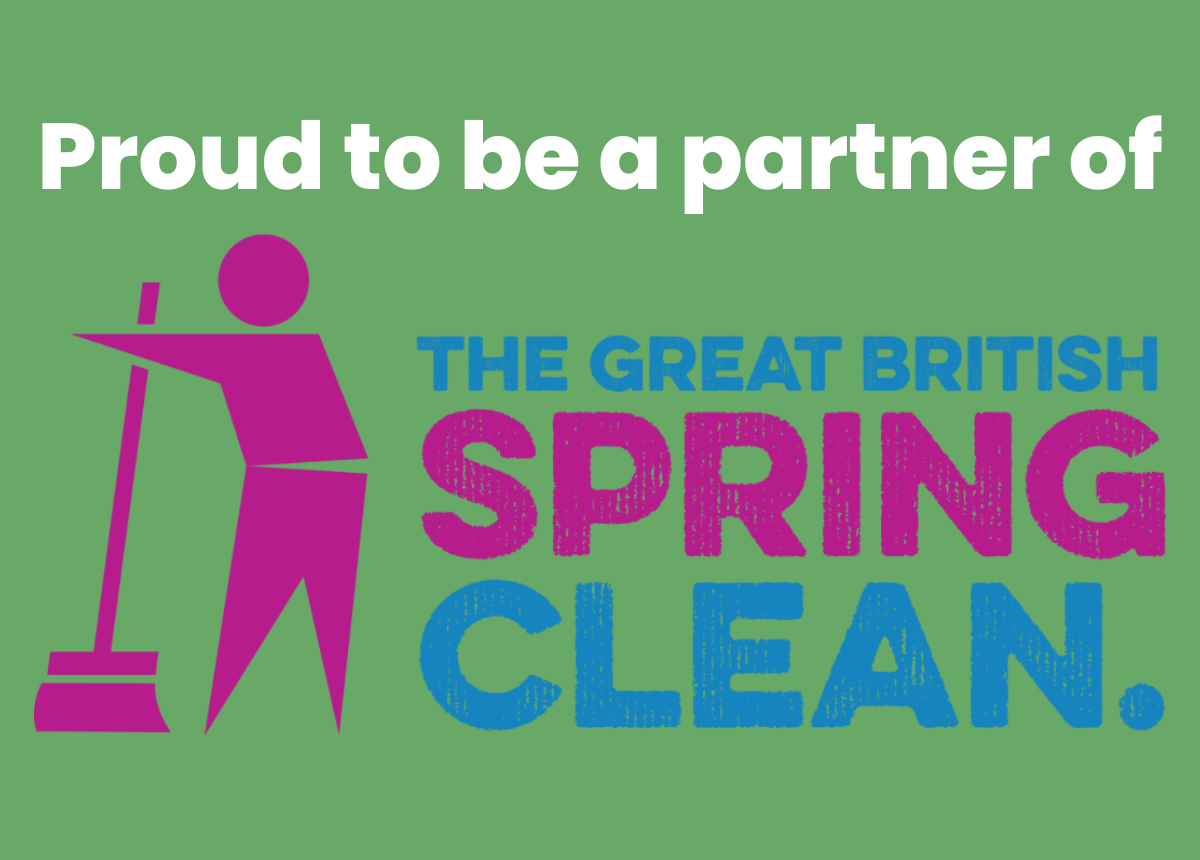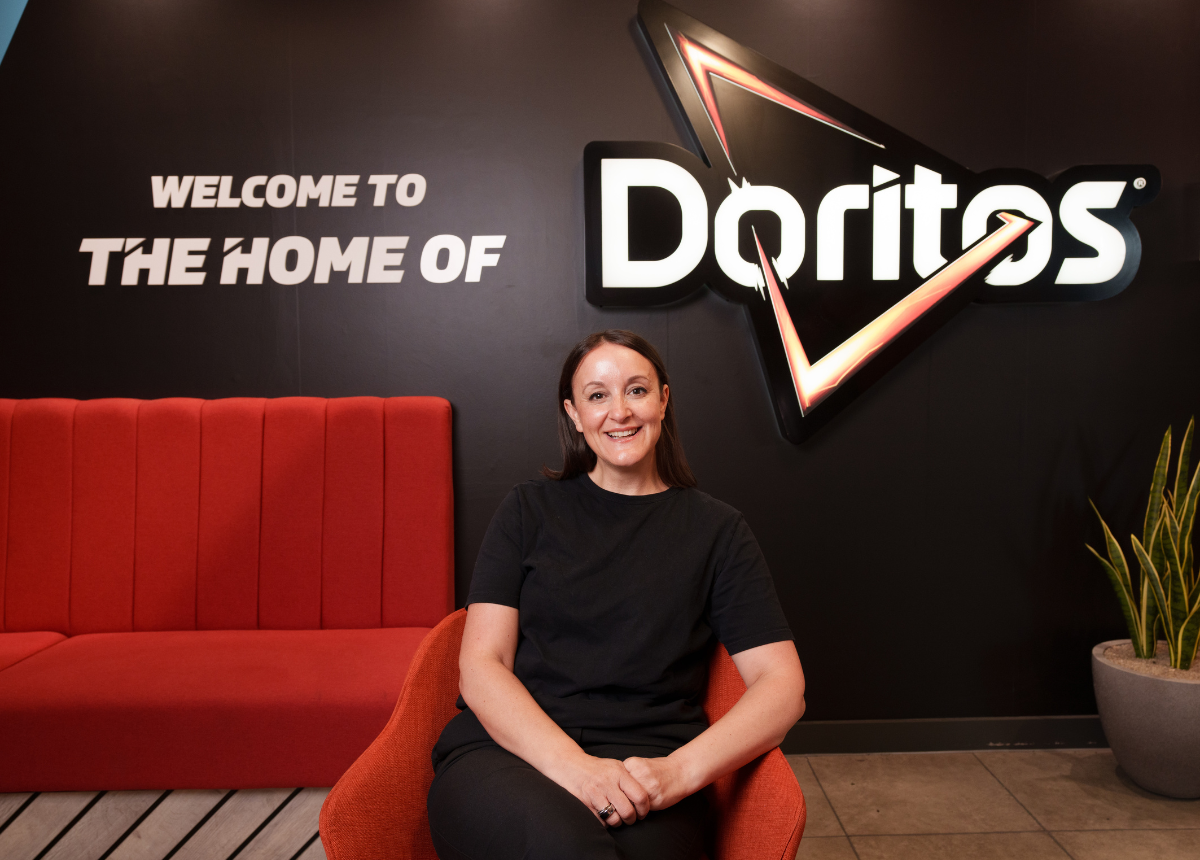Our global ambition
We’re integrating more sustainable and inclusive solutions across our value chain. From how we strive to reduce the impacts of climate change, to how we aim to address social inequities and improve access to nutritious food. More specifically, we're aiming to; mitigate our climate-related impacts and adapt how we operate; replenish high water-risk watersheds and reduce water use; innovate more sustainable packaging and minimise waste; and uplift our employees and communities.
Learn more
Packaging
PepsiCo envisions a world where packaging never becomes waste. We recognise the significant role we play in helping to change the way society makes, uses and disposes of packaging. From replacing plastic with paper outer multipack packaging on Walkers Baked and Snack A Jacks, to introducing 50% recycled plastic packets for Sunbites, we’ve made it a business imperative to help make sustainable packaging a reality.
Learn more +
Packaging
We recognise that packaging waste, when disposed of improperly, is a global problem and we know there is a significant role we can — and must — play to help address this challenge.
Our strategy includes reinventing our packaging to use new renewable materials along with low- or no- packaging formats and scaling reusable models for our beverage portfolio; reducing the amount of packaging we use; and driving increased recycling rates and a circular economy for packaging.
Reinvent
- Reinventing multipack packaging: We’ve reduced the amount of plastic we use by replacing the outer plastic packaging on millions of Walkers 20 bag multipacks with a recyclable cardboard design. Walkers has also rolled out paper outer bags for all Walkers Baked and Snack A Jacks multipacks to reduce the brand’s use of virgin plastic on outer packaging.
- Paper packaging for porridge: Quaker Oats has rolled out new paper packaging across its entire range of porridge pots. The move is set to reduce the brand’s use of virgin plastic and make it even easier for people to recycle their pots alongside other paper packaging at home or on the go.
- Innovating with nanotechnology: Thanks to innovative nanotechnology, we've reduced the amount of plastic used to wrap pallets of Walkers crisps before they are distributed to retailers by 40% year on year[1]. The new film made, using nanotechnology, contains tiny air bubbles to ensure it retains the same stretch and strength while using less plastic. Making the switch to this new film will also help reduce our annual carbon emissions by 465 tonnes.
Recycle
- Recycling crisp packets: In 2018, Walkers launched the first nationwide recycling scheme for crisp packets – at a time when there were very few options for recycling them. Things have changed and today there are more than 5,000 flexible plastic collection points located at supermarkets across the UK. Our recyclable Walkers crisp packets can be taken to any of these locations for recycling. Find out more here.
- Campaigning for kerbside for recycling: As a founder member of the Flexible Plastic Fund, we will work to help improve flexible plastic recycling and reduce plastic pollution by giving the material a stable value and working with industry peers to create the infrastructure needed to make kerbside collection of flexible plastics a reality. We’ve helped fund trials across 10 local councils and 200,000 homes with promising initial results, with 60% of households participating regularly and 90% of materials collected being recyclable. Find out more here.
- On pack recycling logo: All Walkers snacks and crisps, as well as Doritos, have moved to packaging designed to make them even easier to recycle, leveraging innovative design technology to create a simpler bag structure. In the UK, we've worked with OPRL on new labels on our packs, encouraging people to recycle in-store.
- Recycling drink containers: All of our bottles are recyclable and can be put in kerbside recycling making it easy for consumers to responsibly dispose of them. We are committed to working with our peers to support a well-designed, industry-led, not-for-profit Deposit Return Scheme for drinks containers in the UK.
Reduce
- Reducing our packaging: In recent years, we have reduced the amount of plastic used in our multipack packaging by an average of 30% for many of our most popular products, including Walkers, Quavers, Monster Munch and Wotsits. In 2025, we are starting the switch to cavitated film across our multipack outer packaging. This innovative packaging contains tiny spaces within the film, reducing the amount of plastic required by up to 24% compared to standard plastic film.
- Using more recycled plastic: Walkers Sunbites range now uses packaging made with 50% recycled plastic[2] which has been sourced using a mass balance approach. This means buying and using sufficient mass-balanced recycled plastic material to eliminate 200 tonnes[3] of fossil-based plastic across Sunbites packaging by the end of 2025.
- Efficiently designing bottles: We strive to design all packaging with the most efficient use of materials. Over the last decade, we have been leaders in significantly reducing the amount of plastic (polyethylene terephthalate, known as PET) in many of our beverages. We continue to innovate to find ways to reduce the volume of plastics required in our bottles, and their total carbon impact, without sacrificing packaging performance.
1. When using 2021 as a baseline
2. Recycled plastic content has been allocated using the ISCC+ certified mass balance approach
3. Based on UK 2023 annual sales volumes of Sunbites
Climate
Protecting resources and minimising the impact of our manufacturing on the planet is an ongoing priority. From water, to waste, to electricity, we’re continually reviewing and evolving our operations to improve efficiency and reduce our environmental impact.
Learn more +
Climate
We're committed to reducing our greenhouse gas emissions to decarbonise our supply chain.
Making manufacturing sites more sustainable
- Using renewable electricity: We’re continuing to work towards being fossil-fuel free in manufacturing and distribution by increasingly using alternative electricity sources. Our UK manufacturing sites all use 100% renewable electricity. 20% of our Skelmersdale site’s electricity comes from our wind turbine and 25% of the electricity used at our Walkers Crisps factory in Leicester was generated by our anaerobic digestor in 2023.
- Reducing manufacturing waste: We have not sent any manufacturing site waste to landfill since 2011 and are continuing on our journey to reduce our site production waste too. Across our other sites we send manufacturing waste off to a third party anaerobic digestor to ensure nothing goes to waste. We also give most of our potato peelings to local farmers who find it’s a great crop fertiliser.
- Electric powered ovens: In 2025, we finished the installation of three electric ovens in our Leicester manufacturing site, following the completion of a £58 million investment in the factory. It means Wotsits, Monster Munch, Frazzles, Chipsticks and Cheetos, are now cooked using ovens powered by 100% renewable electricity. Read more.
- Energy efficient fryers: In 2024, we invested £8 million in our Pipers Crisps factory in Brigg. In addition to boosting production, new, more efficient fryers replaced the existing fryers, helping to reduce the site’s greenhouse gas emissions by over 200 tonnes a year. Read more. 2024 also saw an £13 million investment in our Coventry factory. The investment saw a manufacturing line replaced with brand new equipment, including more efficient machinery that will reduce the site's greenhouse gas emissions by over 700 tonnes a year. Read more.
Using low emission fuel
- Electric powered trucks: Since 2023, electric trucks have helped us cut 80,000 miles of diesel emissions between Coventry and Leicester. From August 2025, through our partnership with XPO Logistics, we added Mercedes-Benz electric trucks to our UK fleet, with the aim of travelling over one million kilometers powered by electric, cutting 1,200 tonnes of CO₂ emissions annually. Read more.
- Electric powered yard vehicles: We’ve also rolled out the first in a new fleet of electric yard vehicles to move 40,000 pallets of product around our distribution centre, further reducing our emissions. Read more.
- Hydrotreated Vegetable Oil journeys: Through initiatives with Pollock (Scotrans) Ltd., AB Texel and XPO Logistics, we're continuing to use Hydrotreated Vegetable Oil (HVO), a renewable diesel alternative made from used cooking oil and waste fats to fuel parts of our transport network. Combined these partnerships are helping to power over 14 million kilometres of journeys annually using HVO fuel and are expected to save more than 16,000 tonnes of greenhouse gas emissions. Read more.
Water
Water is a precious resource, and we are working to make every drop we use go as far as possible and to strengthen local watersheds wherever we operate.
Not only does water scarcity have serious implications for farmers and their communities, it threaten's PepsiCo's ability to source ingredients and manufacture our products.
Learn more +
Water
We're on a journey to improve water efficiency both at company-owned and third-party sites, one droplet at a time.
Using data to reduce water usage
- CropTrak: In partnership with Cambridge University, we developed CropTrak – an innovative system of sensors which allow our farmers to measure the moisture levels in soil and track this against weather reports. Using this data our farmers can judge exactly when to water their crops and how much water is needed. This reduces water waste, saves money and produces more crop per drop of water.
Decreasing water used in manufacturing
- Monitoring water usage: Our Skelmersdale site has been on a multi-year journey to reduce water consumption and truly make every drop count! Around the clock monitoring of water use at every key step in the production process means making Walkers Crisps at Skelmersdale today uses 30% less water than it did back in 2015. Best practices established at Skelmersdale are now replicated in PepsiCo locations around the globe, meaning our wettest site in the North West of England is helping sites in some of the driest locations on the planet!
- Splash Cone: Another step in continuing this journey is our innovation Splash Cone. A simple design tweak, developed in our Leicester plant, which has enabled us to improve the distribution of water during the potato slicing process, annually saving over 640 million litres of water globally.
